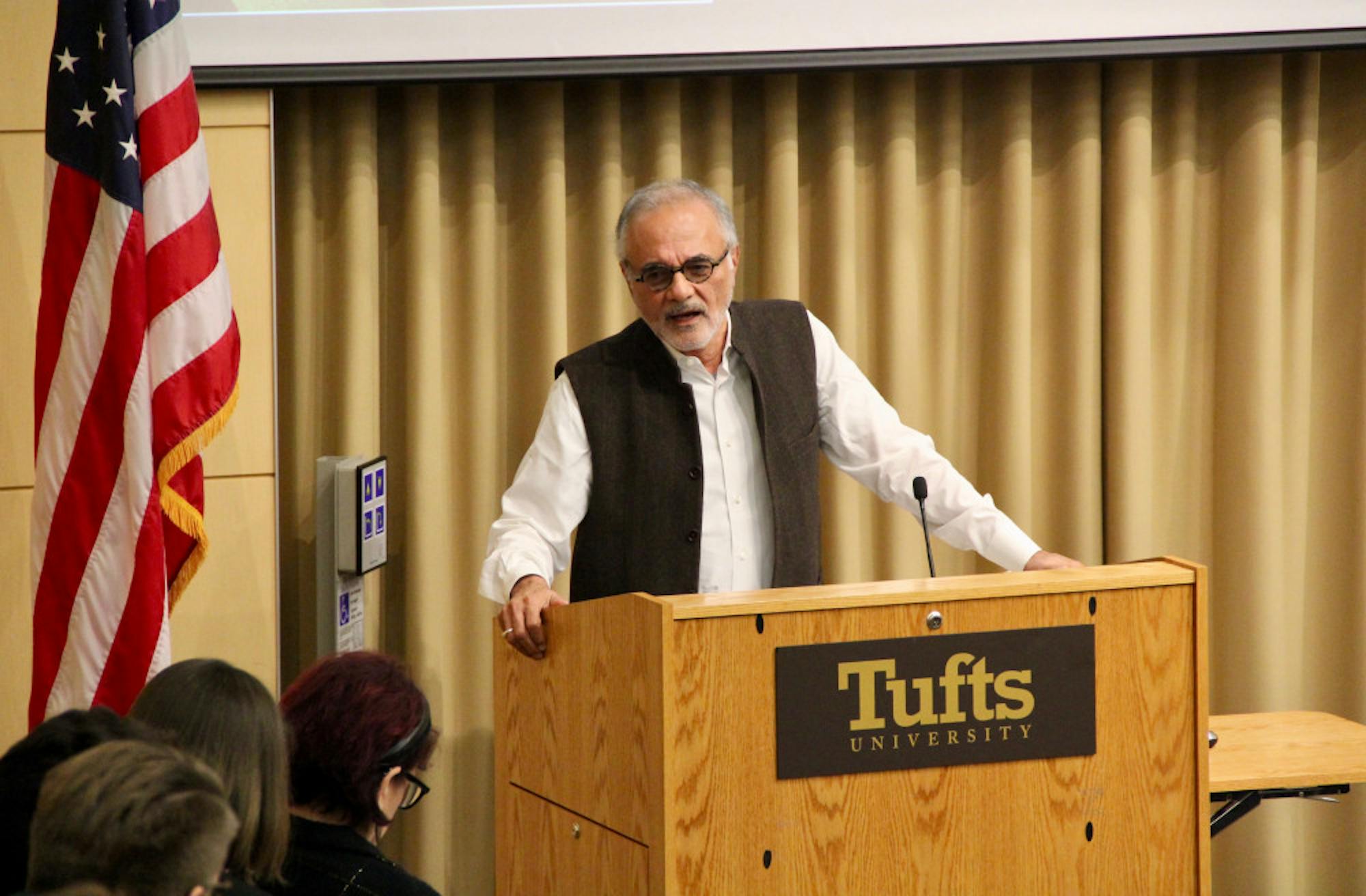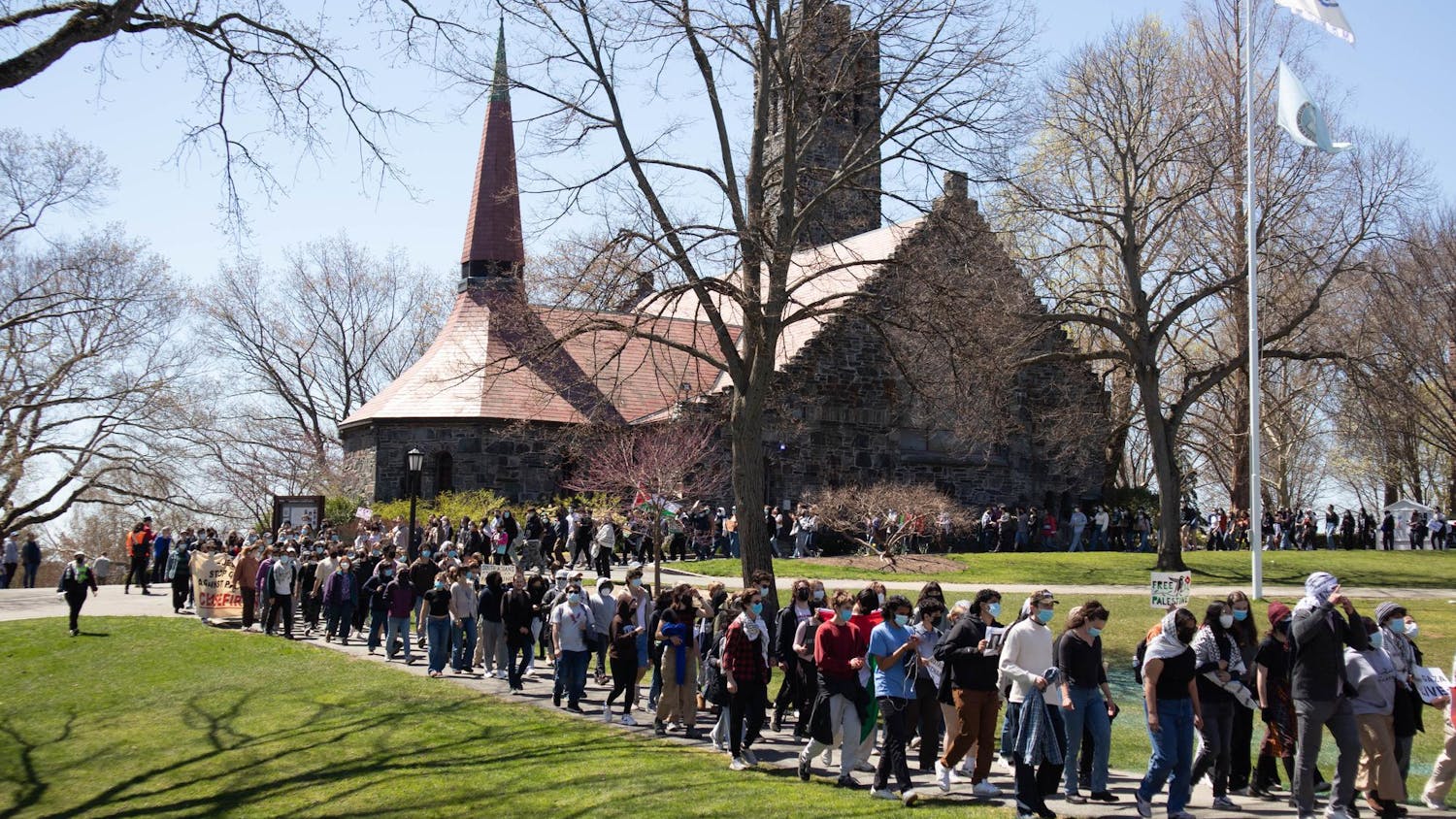The Fletcher School of Law and Diplomacy hosted a conference titled “Decolonizing International Relations: Law, Development, Resistance” on Friday. The conference included a three-part panel. Each section highlighted a different aspect of decolonization. Sections were titled “Re-examining the Foundations and Practice of International Law, People Power,” “Strategic Non-violence Bottom Up Approaches,” and “Moving Beyond North-South Development Practices.”
The conference took place in the ASEAN Auditorium and lasted from 8:30 a.m. to 6 p.m. Attendance varied for each panel with around 50-100 people at each event.
Three working sessions were also held after the first panel where participants of the conference got the opportunity to work and listen more closely to some of the panelists. These sessions lasted about 80 minutes each. The sessions were titled “Environmental Justice in Practice,” “Movement Methods” and “International Development in Practice.”
Rachel Kyte, the dean of the Fletcher School, gave the welcoming address after the opening remarks, which were hosted by Danielle Tomlinson and Nigel Robinson, both graduate students at the Fletcher School.
“It is an opportunity, an urgent opportunity, to examine our shared assumptions about the world,” Kyte said about the conference in her opening remarks for the audience.
The second panel focused on resistance and decolonization in international relations. In particular, it addressed and critiqued the difference between violent resistance and civil resistance. The panelists featured Maria J. Stephan from the U.S. Institute of Peace, Sean Chabot from Eastern Washington University and Tufts Anthropology Department Chair Amahl Bishara. The panel was moderated by Professor Douglas A. Johnson from Harvard Kennedy School. The panel opened up to questions from the audience after its discussion.
“Why are we engaging in violence? If I’m defending my way of life is that really violent? Or is that my way of being nonviolent in that moment? If I’m building my own way of life and communities, isn’t that also a form of nonviolence? Why don’t we see that as legitimate?” Chabot said during the discussion to explain the difficulties in labeling resistances as being either nonviolent or violent and how that can become problematic.
“We want to also think about decolonizing civil resistance, and we might also think about histories of solidarity,” Bishara said.
When an audience member expressed concern that the panel would be discussing crises and policies around the world without panelists from each region, Stephan suggested that more forums would be needed in the future.
“I would recommend 10 other future panels, workshops and events involving leaders of resistance movements around the world and have them share their stories, their strategies and tactics and have the whole community engage with that,” she said.
The third panel featured speakers including Sidi Omar,who is the UNESCO chair of philosophy for peace, Kyla Rathjen, Global Advocate Program Management and Inclusion Lead for Mama Hope, and Sumeeta Banerji from the U.N. Office for South-South Cooperation.
Mahmood Mamdani, a professor in the anthropology and political science departments at Columbia University, delivered the keynote address for the event. According to the event description, Mamdani's work focuses on the history of genocide in Africa, human rights theory and other topics.
The closing remarks were given by Associate Professor with the Fletcher School Kimberly Theidon, a writer and medical anthropologist focusing on Latin America. She reiterated the time and effort put into the execution, planning and making of this conference that was stated earlier in the morning by Robinson.
“It’s not the work of one day, it’s not the work of one or five people, it is the work of a lot of people,” Theidon said.
This event marks the second Decolonizing International Relations conference at Tufts. Organized last year by second-year Fletcher students Latifah Azlan and Khadija Mohamud, the conference seeks to contrast Western-dominated narratives its founders experienced at Fletcher.
Panelists discuss decolonization, colonial struggles in Fletcher conference

Keynote speaker Dr. Mahmood Mamdani, a Ugandan author and academic, addresses the audience during the Decolonizing International Relations Conference in ASEAN Auditorium on Oct. 25.





